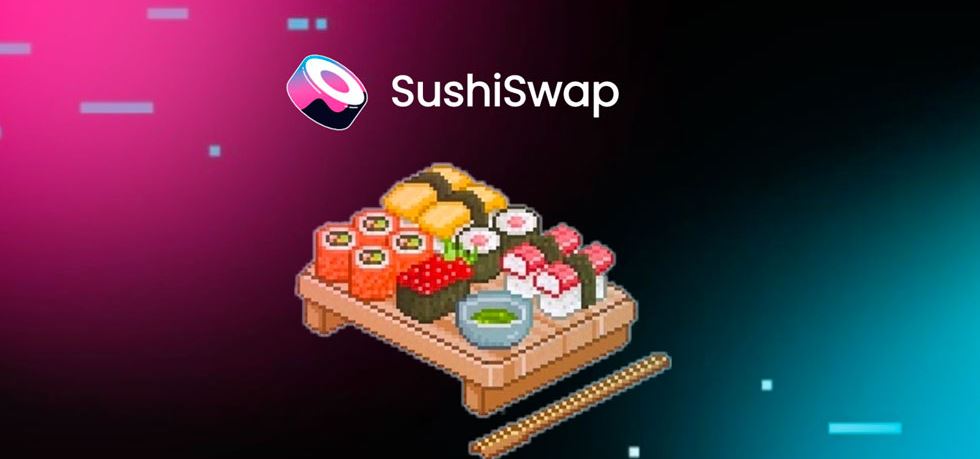Since deploying natively on Harmony’s blockchain in May, Sushi is now deepening its collaboration with Harmony after revealing plans to bring its full decentralized finance (defi) product stack onto the blockchain with accompanying incentives designed to drive greater participation. Meanwhile, decentralized exchange (dex) competition continues to swell.
Partnership Expansion Accompanies $4 Million in Incentive Campaigns
On Thursday, Harmony, a proof-of-stake (PoS) blockchain network focused on cross-chain transactability, unveiled a decision to broaden the partnership agreement with Sushi, a community-driven defi platform offering a full stack of decentralized finance services.
After deploying Sushiswap on Harmony back in May, the freshly strengthened collaboration paves the way for Sushi to deploy the remainder of its product suite onto the effective proof-of-stake (EPoS) blockchain.
Sushiswap is the second runner-up in the space with an 11% share of dex trade volume, according to today’s Dune Analytics seven-day stats. The leading dex is Uniswap with 61% of the seven-day volume. Based on the most recent data, while Sushiswap’s seven-day volume is $2,079,972,559, Uniswap is well ahead with $10,793,064,634.
Additionally, up and coming players like Curve and 0x Native are racing to close the gap, with Curve at $1,427,401,281 seven-day volume and Ox showing $1,091,283,123 in seven-day trade volume.
Corresponding with the second anniversary of Harmony’s mainnet launch, the expanded partnership aims to strengthen the protocol’s cross-chain defi capabilities, while leveraging Harmony’s 2-second transaction speeds and low transaction costs.
The Sushi full-stack deployment will be accompanied by two incentive campaigns. This includes a $2 million liquidity mining campaign to encourage yield farming with $1 million of ONE and $1 million 1Sushi token rewards.
Kashi, a lending decentralized app (dapp) built on top of Sushi’s Bento Box, is also natively deploying on Harmony. The lending and margin trading platform will be the destination for another $2 million incentive program that will contain $1 million One and $1 million 1Sushi tokens. Bento Box, a vault for asset deposits, will not be deploying on Harmony. However, the stored assets will be accessible for dapps built on top of it.
Addressing Defi’s Deficiencies
As defi protocols seek to avoid the high costs and low throughput associated with Ethereum, the race is on to deploy on competing networks and solutions.
Sushi operates in an ocean of defi solutions and is far from the only platform making a move to new horizons, echoed by Aave and Curve’s adoption of Polygon. Sushiswap is also on Polygon, highlighting the platform’s rapid adoption.
Polkadot is also attracting defi’s attention as an alternative to the scalability and cost limitations of Ethereum. Acala, which aims to be the Ethereum-compatible defi hub on Polkadot, has seen its own Karura platform win the first parachain auction on Kusama, Polkadot’s canary network, potentially shifting the ultra-competitive defi landscape in yet another direction.
With the costs and difficulties of switching between blockchain networks continuing to fall, it remains to be seen whether Ethereum’s upcoming shift to proof-of-stake will be able to stave off the migration of platforms seeking better conditions elsewhere.
Source Credits: Bitcoin.com

 Business1 week ago
Business1 week ago
 Business1 week ago
Business1 week ago
 Business1 week ago
Business1 week ago
 Business1 week ago
Business1 week ago
 Business1 week ago
Business1 week ago
 Business1 week ago
Business1 week ago
 Business1 week ago
Business1 week ago
 Business2 days ago
Business2 days ago


























